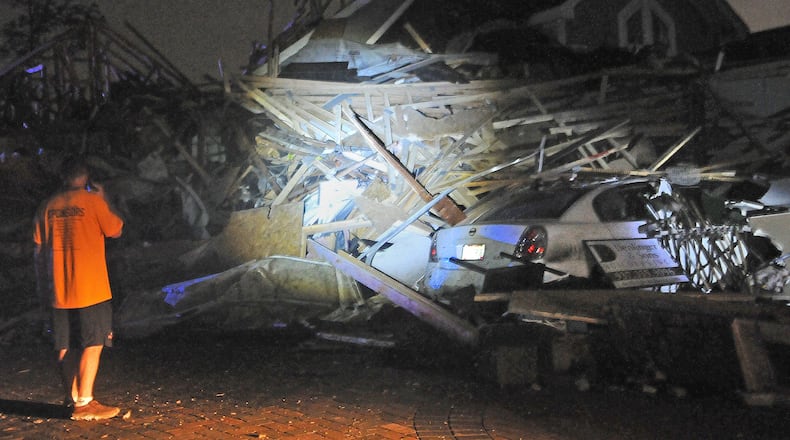The bill drew no comments Tuesday in its second hearing before the Senate Ways & Means Committee. State Rep. Brian Lampton, R-Beavercreek, introduced the bill in February, it passed the House in March and was referred on to the Senate committee. Most of the local legislative delegation has signed on as cosponsors.
“We got it passed unanimously out of the House,” Lampton said. The Senate Ways & Means Committee chair, state Sen. Louis Blessing, R-Colerain Twp., seems to favor the bill and is willing to move it on, Lampton said.
“I’m hopeful we’ll see it on the Senate floor pretty soon,” he said.
Greene County Auditor David Graham planned to testify Tuesday but had a scheduling conflict.
Reached later by phone, Graham said the idea for the bill originated from discussions between himself and Montgomery County Auditor Karl Keith. Both were frustrated in their efforts to contact owners of damaged or destroyed properties in the wake of the tornadoes, Graham said.
“We could see that the buildings were destroyed,” he said. “But we couldn’t offer tax relief to that taxpayer unless they filled out the destroyed property form.”
Often, a property’s physical address is the only contact information the auditor’s office has for an owner, Graham said. He tried mailing some four times to let them know they could get a break on property taxes, to no avail.
“If you’ve lost your home, chances are you’re not picking up your mail,” Graham said.
Former state Rep. Rick Perales, now a Greene County commissioner, introduced the bill in the preceding legislative session but it was “pushed aside,” Graham said. Lampton reintroduced it this year.
The bill would let county auditors file a valuation adjustment on their own, if they know the damage done to a property and approximately when it occurred.
“We talked about it in relation to the tornado, but it reaches further. I can get reports from fire departments on the fire runs that they did,” Graham said.
County auditors can reduce the value of damaged property now — but only by written request. That has to come from the property owner or “two disinterested residents of the same township or municipal corporation.”
Under HB 51, property owners could still file the paperwork themselves if they wish.
The valuation adjustment for tax purposes depends on what quarter of the tax year the damage occurred. If it happens in the first quarter, the auditor can reduce the tax valuation by “an amount that fairly represents the extent of the injury or destruction.”
If in the year’s second quarter, the auditor can cut tax valuation by 75% of the estimated damage cost. If damage occurred in the tax year’s third quarter, the tax valuation could be cut by 50% of the damage cost, and by 25% if it occurred in the year’s final quarter.
About the Author

